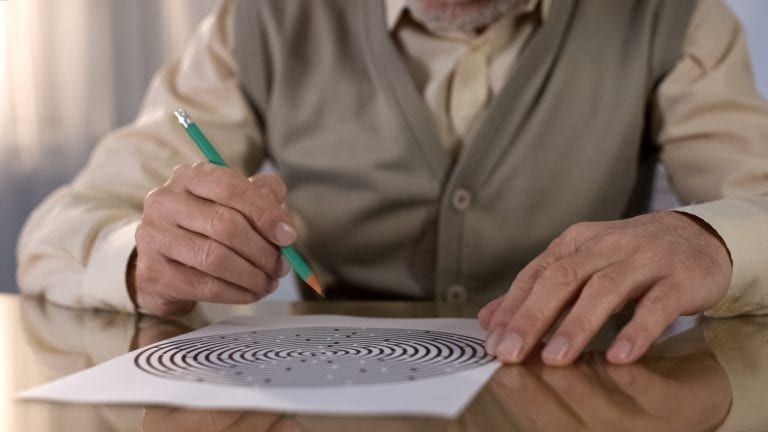Neurological rehabilitation (neuro rehab) is a specialized form of rehab that focuses on individuals with head injuries, as well as neurological diseases or disorders. Each program is centered on the individual and will vary depending on your diagnosis and individual needs. To help promote the highest level of function and quality of life, neurological rehabilitation can include:
- Speech therapy for speaking, writing, reading, or swallowing
- Bladder and bowel retraining
- Stress, anxiety, and depression management
- Help with activities of daily living (ADLs) such as eating, dressing, bathing, toileting, handwriting, cooking, and housekeeping
- Education and counseling
- Nutrional counseling
- Vocational counseling
- Social and behavioral skills retraining
- Exercise to improve movement, prevent weakness, manage spasticity and pain, and maintain range of motion
- Activities to improve mobility, muscle control, walking, and balance
- Help with obtaining assistive devices that promote independence
- Safety and independence around the home
- Pain management
- Emotional support
Did You Know?
After a traumatic brain or spinal cord injury, the sooner you seek neurological rehabilitation, the better the chances are of recovery. Seeking treatment soon after an injury and spending more time on therapy each day are two main ways to help improve your chances of recovery.
Frequently Asked Questions:
Am I a candidate for neuro rehab?
You may be a candidate for neuro rehab if you have any of the following:
- Brain or spinal cord injury
- Functional disorders such as headache, dizziness, seizure disorder, and neuralgia
- Vascular disorders such as ischemic strokes, hemorrhagic strokes, subdural hematoma, or transient ischemic attacks (TIAs)
- Degenerative disorders such as Parkinson’s disease, multiple sclerosis, amyotrophic lateral sclerosis (ALS), Alzheimer disease, or Huntington chorea
- Structural or neuromuscular disorders such as Bell palsy, cervical spondylosis, carpal tunnel syndrome, brain or spinal cord tumors, peripheral neuropathy, muscular dystrophy, myasthenia gravis, or Guillain-Barre syndrome
- Infections such as meningitis, encephalitis, polio, or brain abscess
To determine if you are an ideal candidate for neuro rehab, schedule a consultation at Premier Neurology today.
What can I expect from neuro rehab?
Your expectations with neuro rehab will vary depending on your individual needs and program. As a general rule, however, you can expect to start with small goals. You can also expect your neurologist to provide you with diet and exercise guidelines to help you reach your goals. While undergoing neurological rehabilitation, it is important to have someone to help you with daily exercises, as well as to bring you to and from therapy.
Although neuro rehab offers many benefits, it can take time to notice results. Your starting condition and willingness to do the work are two things that affect how long it takes to notice results, however there are several other factors that can also play a role. At times, you can also expect neuro rehab to be exhausting and frustrating.
Will I have to follow-up after neuro rehab?
Each patient is different and will have different follow-up guidelines after completing neuro rehab. In some cases, you can expect to return every so often so that your therapist can make sure you are still progressing.




